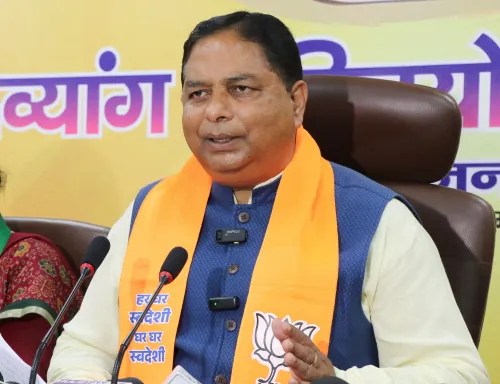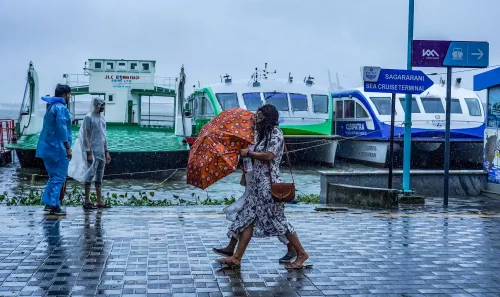What Is the MEA's Proposal for the Overseas Mobility Bill?

Synopsis
Key Takeaways
- Introduction of the Overseas Mobility Bill
- Replacement of the Emigration Act of 1983
- Creation of the Overseas Mobility and Welfare Council
- Focus on the welfare of Indian emigrants
- Enhanced regulatory framework for migration
New Delhi, Oct 10 (NationPress) The Ministry of External Affairs (MEA) has put forth a plan to present the Overseas Mobility (Facilitation and Welfare) Bill, 2025, in Parliament. This initiative aims to facilitate comprehensive management of emigration, establish regulatory frameworks for safe and orderly migration, and oversee the overseas employment of Indian citizens.
The proposed legislation aims to create a structured framework that develops policies and initiatives that incentivize protective measures for the welfare of emigrants. This new Bill is set to replace the Emigration Act of 1983.
According to the MEA, the new Bill intends to form an Overseas Mobility and Welfare Council to enhance collaboration among various Ministries concerning policy management.
“The Bill strives to achieve a balance between enhancing opportunities abroad and establishing a regulatory framework to protect vulnerable demographics. It will implement a mechanism to manage the administration and execution of international agreements related to migration. Additionally, it will employ data-driven policy management based on labor studies, ensuring coordinated actions across different ministries and departments,” the MEA elaborated.
Earlier in the year, the Parliamentary Committee on External Affairs reported that the MEA was “seriously considering” the enactment of a new law provisionally titled ‘Overseas Mobility (Facilitation and Welfare) Bill,’ aiming to replace the “outdated provisions” of the Emigration Act 1983.
The report indicates that the Ministry has observed a significant enhancement in India’s global standing, particularly in economic, scientific, and technological sectors.
“There is an increasing global interest in engaging with India, resulting in an expansion of India’s diplomatic outreach. This is reflected in India’s leadership in regional groupings, a rise in high-level exchanges, numerous bilateral agreements, and initiatives like the International Solar Alliance (ISA) and the Coalition on Disaster Resilient Infrastructure (CDRI),” the report stated.
Under the leadership of Prime Minister Narendra Modi, the government has fostered a favorable environment for India’s growth and development through partnerships with allied nations over the past decade.









